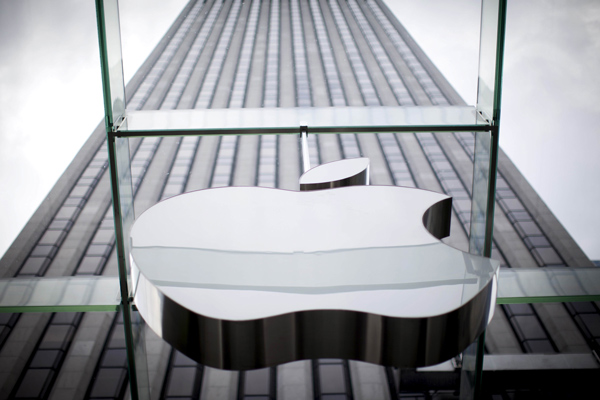US govt rebuts Apple for refusal to help access to terrorist's iPhone
(Xinhua) Updated: 2016-03-11 09:35
 |
|
An Apple logo hangs above the entrance to the Apple store on 5th Avenue in New York City, in this file photo taken July 21, 2015. [Photo/Agencies] |
SAN FRANCISCO - The US Department of Justice (DOJ) fought back Thursday against Apple Inc.'s refusal to help hack into the phone of a terrorist killer.
In a court filing in response to Apple's motion nearly two weeks ago, the DOJ alleged that the Silicon Valley company "deliberately raised technological barriers" to block the access to the iPhone 5c used by Syed Farook, who together with his wife Tashfeen Malik shot dead 14 people on Dec 2 last year in San Bernardino, California, before being killed by police.
Apple on Feb 25 asked Judge Sheri Pym, of the US District Court, Central California, to reverse her order on Feb 16 that the technology company help the Federal Bureau of Investigation (FBI) access the phone owned by San Bernardino County, where Farook worked at the public health department.
The smartphone has a security feature that erases data after 10 unsuccessful unlocking attempts.
As his initial response, in the form of a letter posted on Apple's website hours after Judge Pymon's ruling, Chief Executive Officer Tim Cook called the government move "an unprecedented step" threatening the security of customers.
Since then, Apple and the DOJ have been fighting through the court of public opinions.
In its argument, the DOJ said Thursday that Apple's rhetoric is false.
The federal government department filed a motion on Feb 19, trying to compel Apple to comply with the court order and alleging that there was brand marketing strategy behind the company's refusal to help the FBI.
The two sides are scheduled to appear at a hearing in the US District Court in Central California on March 22.
- Apple lawyer, FBI director face off in Congress on iPhone encryption
- Apple fights back in court, refusing to hack into iPhone for FBI
- San Bernardino victims to oppose Apple on iPhone encryption
- Apple ordered to help FBI access terror killer's phone
- Chinese phones pushing aside Apple, Samsung
- Apple supplier Manz to sell 29.9% stake to Shanghai Electric
- Xiaomi launches Mi 5 in Beijing, Barcelona with an eye on Apple






